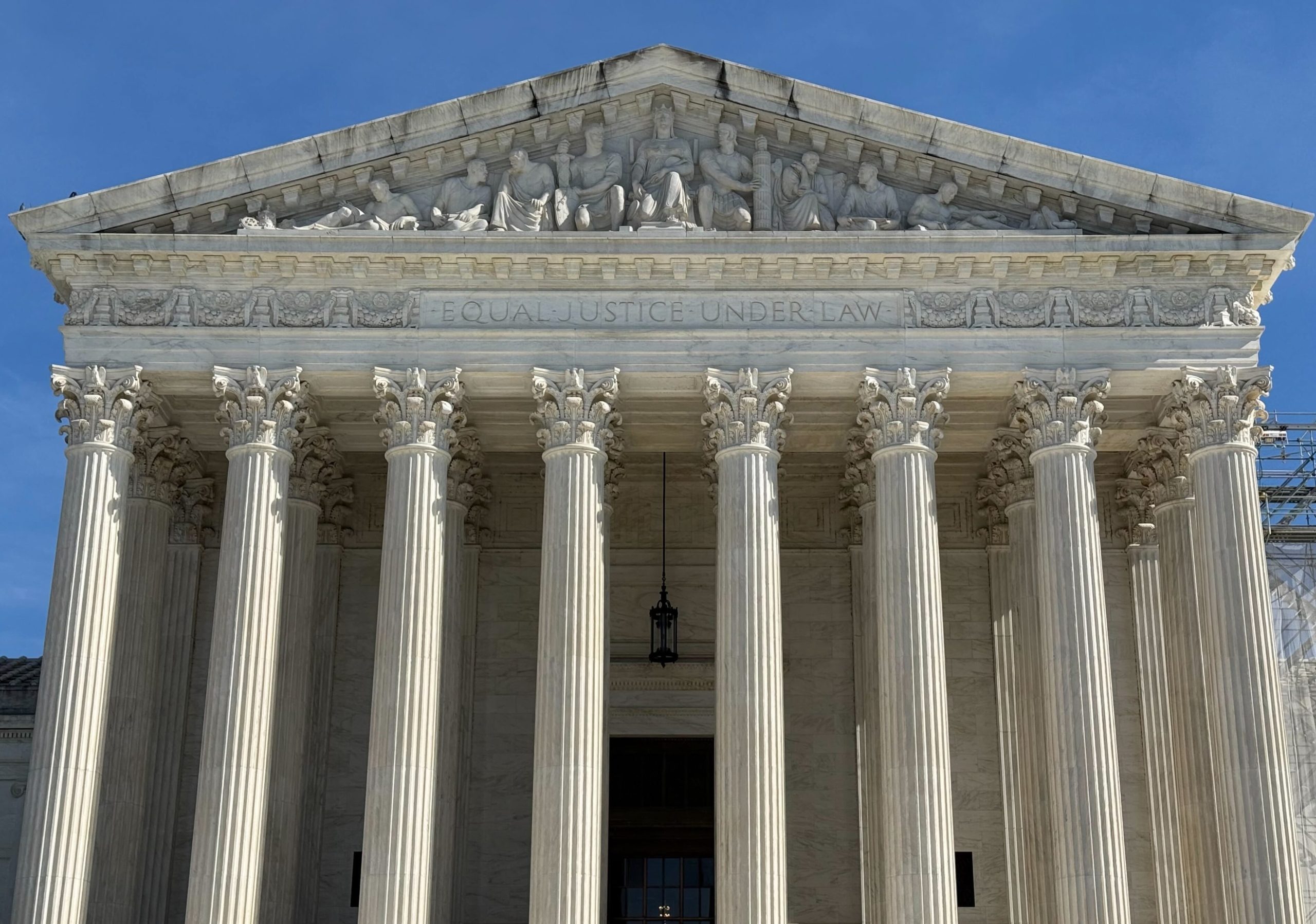Detainees under Alien Enemies Act urge justices to leave judges bar on removal in place


Lawyers for alleged members of the Venezuelan gang Tren de Aragua urged the Supreme Court on Tuesday to leave in place an order by a federal judge in Washington, D.C., that prohibits the federal government from removing them, or anyone else, from the United States under the Alien Enemies Act, an 18th-century law that until now has only been invoked during wartime.
In a 39-page filing, the plaintiffs noted that it is becoming increasingly clear that many (perhaps most) of the men who were sent to El Salvador on March 15 were not actually members of TdA, and were instead erroneously listed as TdA members largely because of their tattoos. The order by U.S. District Judge James Boasberg, the plaintiffs say, is thus essential to ensure that more individuals who have no affiliation with the gang will not be sent to a notorious foreign prison.
President Donald Trump issued the executive order at the center of the case on March 15. It targets Tren de Aragua, a large Venezuelan gang that began in that countrys prisons and then expanded into other parts of Latin America. The order directs government officials to quickly remove, without a hearing, noncitizens who are designated as members of TdA.
Trump relied on the Alien Enemies Act, a 1798 law that authorizes the president to detain or deport citizens of an enemy nation without a hearing when Congress has declared war or when an invasion has occurred.
Five Venezuelans in immigration custody who believed they could be removed under Trumps order went to federal court in Washington to challenge Trumps use of the AEA. Boasberg prohibited the federal government from removing any of the individual plaintiffs for 14 days, as well as anyone else under the AEA. During a hearing, he directed any flights carrying noncitizens that had already taken off to return to the United States, although news reports later indicated that more than 200 noncitizens later landed in El Salvador, where they were taken to a maximum-security prison.
The U.S. Court of Appeals for the District of Columbia Circuit expedited the governments appeal, and on March 26 it turned down the governments request to put Boasbergs order on hold.
The government came to the Supreme Court on March 28, asking the justices to step in. It told the court that Boasbergs orders jeopardize sensitive diplomatic negotiations and delicate national-security operations, which were designed to extirpate TdAs presence in our country before it gains a greater foothold.
The plaintiffs countered on Tuesday that there is no harm to the government from keeping Boasbergs orders in place. Indeed, the plaintiffs noted, the government has, using other immigration laws and procedures, continued to remove alleged members of the Tren de Aragua.
But by contrast, the plaintiffs wrote, if Boasbergs orders are lifted, the plaintiffs will suffer extraordinary and irreparable harms being sent out of the United States to a notorious Salvadoran prison, where they will remain incommunicado, potentially for the rest of their lives, without having had any opportunity to contest their designation as gang members.
The plaintiffs stressed that the government agrees with them that individuals should have an opportunity to challenge their designation as TdA before they can be removed. Instead, they observed, the government simply contends that the plaintiffs were instead required to bring a habeas corpus case that is, a case to challenge the legality of their detentions and contests the decision to challenge the presidents use of the Alien Enemies Act in Washington, D.C., rather than in Texas, where the five named plaintiffs are being held. These kinds of questions are procedural issues more appropriately decided by lower courts in the first instance, rather than by the Supreme Court in an emergency appeal, the plaintiffs suggested.
Moreover, the plaintiffs continued, because the Trump administration concedes that some court somewhere can review their case, its dire claims about the TRO amounting to intolerable judicial interference with national security reduce, at best, to technical disputes about where that court should be, which can be determined by the district court.
And the government is in any event wrong on the merits, the plaintiffs concluded. The Alien Enemies Act does not justify the presidents March 15 order. The AEA was intended to address military hostilities directed at the United States, not criminal activity by a gang during peacetime.
The plaintiffs are also not required to bring their claims as habeas cases, they insisted. This is particularly true, they say, when it will be a practical impossibility for most people subject to the AEA to bring a habeas claim in time to stave off their removals. Among other things, the plaintiffs noted, the government continues to contend that it is not obligated to notify individuals who are covered by the presidents order. And when asked pointedly in the court of appeals whether it plans to load more individuals onto plans without notice the moment the TRO is dissolved, the government did not hesitate to take that position. As a result, the plaintiffs said, Boasbergs order is the only thing preventing the Trump administration from invoking the AEA to send individuals to a prison in El Salvador, perhaps never to be seen again, without any kind of procedural protection, much less judicial review.
This article was originally published at Howe on the Court.
Posted in Emergency appeals and applications
Cases: Trump v. J.G.G.
